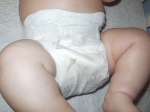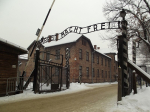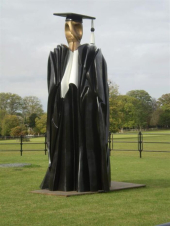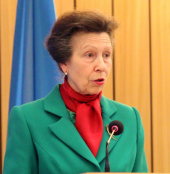
Britain and France were to announce a new "command and control centre" Thursday to tackle smuggling gangs in Calais, as Europe grapples with its biggest migration crisis since World War II.
Under a deal to be signed by Home Minister Theresa May and her French counterpart Bernard Cazeneuve, British teams will be deployed to bust smuggling gangs and also reduce nightly attempts by desperate migrants and refugees to break into the Channel Tunnel.
But in an interview with AFP, the head of the Red Cross slammed the "indifference" of governments across Europe that has allowed a continental crisis to take hold.
"What will be the saturation point? When will everybody wake up to see that it is a real crisis?" Elhadj As Sy, head of the International Federation of Red Cross and Red Crescent Societies, said in Geneva.
His comments came as a barrage of alarming statistics showed that hundreds of thousands of migrants -- many fleeing war and persecution in countries like Syria -- are pouring into the European Union, with no end in sight.
The new deal for Calais includes extra French policing units, additional freight searches, and making the railhead at the Eurotunnel entrance more secure through fencing, security cameras, flood lighting and infrared detection technology.
It also provides 10 million euros ($11.2 million) over two years to speed up asylum applications and boost humanitarian aid in the northern port city.
Some 3,000 people from Africa, the Middle East and Asia are camped in Calais, hoping to get to Britain where many have family and work is thought easier to find.
- Record highs -
The numbers trying to reach Britain are a tiny fraction of those entering other European countries, particularly Germany, which said this week it expects a new record 800,000 asylum seekers in 2015 -- far more than the 500,000 initially expected.
Cazeneuve was due to travel to Germany on Thursday evening to discuss the issue, which ChancellorAngela Merkel has warned could become a bigger challenge for the European Union than the Greek debt crisis.
EU border agency Frontex on Tuesday reported a record high of 107,500 migrants at the European Union's borders last month.
And the number of migrants arriving in debt-crippled Greece is accelerating dramatically, with nearly 21,000 landing on the overstretched Greek islands last week alone, the United Nations said.
Red Cross chief Sy said the only way to stop the traffickers was to increase legal means of migration.
"It's Greece today, it could be another entry point tomorrow," he said. "The more legal room you have (to migrate), the less room you will have for criminal activity."
The EU has approved 2.4 billion euros ($2.6 billion) of funding to help member states cope with the flood of migrants, but Sy insisted the response so far "is nowhere near the scale of the problems that we are seeing."
- Moving the problem -
Speaking at the entrance of the Channel Tunnel, Cazeneuve praised "the excellent cooperation between British and French authorities", which has helped bring down entry attempts from around 2,000 per night at the start of the summer to around 150 this week.
NGOs say the spike in break-ins at the start of the summer was largely due to strikes and protests blocking the Calais port, which led to chaos as thousands of lorries diverted to the Eurotunnel.
British politician Keith Vaz, who chairs a body overseeing May's ministry, welcomed Thursday's agreement but warned there was already evidence of greater "illegal activity" at other Channel ports in France, Belgium and the Netherlands.
"Closing off one route will only mean the problem moves to another port," he said.
Tighter security has pushed up prices for migrants and refugees paying smuggling gangs to sneak them across.
"Getting into a lorry cost 500 euros just a few months ago, now it's 800-900 euros because there are so many more police and sniffer dogs," NGO worker Francois Guennoc told AFP. afp


































